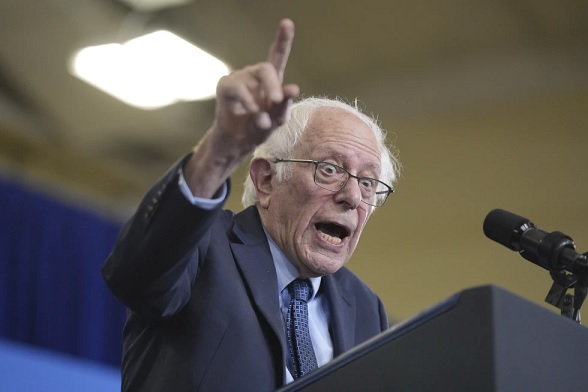US Senator Calls for Global Accountability Amid War Crimes Allegations
ICC Takes Landmark Action Against Israeli Leaders
The International Criminal Court (ICC) issued arrest warrants for Israeli Prime Minister Benjamin Netanyahu and former Defense Minister Yoav Gallant. The ICC accused them of war crimes, including using starvation as a weapon and targeting civilians in Gaza. The decision marks a historic moment in international justice, focusing on accountability in conflicts involving heavy civilian casualties.

Bernie Sanders Backs ICC’s Move
US Senator Bernie Sanders publicly endorsed the ICC’s decision, emphasizing its importance in upholding international law. Sanders described the charges as “well-founded” and stressed the Geneva Conventions’ role in protecting civilians during war. “If the world does not uphold international law, we will descend into further barbarism,” he said. His statement underlines the necessity of holding leaders accountable for their actions, even in complex conflict scenarios.
Heavy Civilian Toll Sparks Outrage
Sanders acknowledged Israel’s right to self-defense but criticized the devastating impact on Palestinian civilians in Gaza. Over 44,000 people, including many women and children, have reportedly died during the conflict. This staggering loss of life has fueled global outrage and calls for stricter adherence to international humanitarian standards.
Global Implications of ICC Action
The ICC’s arrest warrants for Netanyahu and Gallant set a precedent for addressing alleged war crimes in high-profile conflicts. By accusing Israeli leaders of crimes against humanity, including murder and persecution, the court sends a message about the importance of accountability. Critics argue that such actions may escalate tensions, but supporters believe they are essential to preserving the rule of law.
The ICC’s decision to issue arrest warrants for Netanyahu and Gallant, supported by Bernie Sanders, highlights the global demand for justice and accountability. As the Gaza conflict continues, this case could reshape how the international community addresses war crimes and protects civilian lives in future conflicts.
Our Visitor






 Users Today : 36
Users Today : 36


